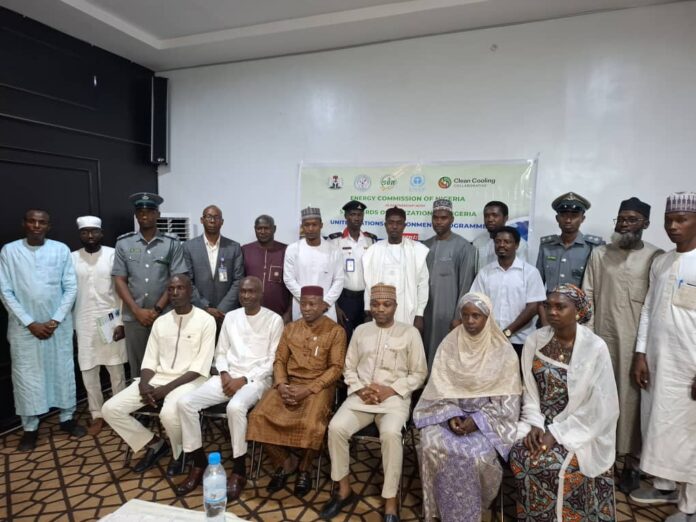The Energy Commission of Nigeria (ECN), in collaboration with the Standards Organisation of Nigeria (SON) and the United Nations Environment Programme (UNEP), has held a one-day stakeholder workshop in Kano to promote compliance with Nigeria’s newly approved minimum energy performance standards (MEPS) for air conditioners.
This workshop is part of the broader scaling up energy-efficient and climate-friendly cooling in Nigeria initiative, which aims to accelerate the adoption of energy-efficient and low-GWP refrigerant-based air conditioning systems across the residential, commercial and public sectors. The project aligns with Nigeria’s Nationally Determined Contributions (NDCs) and President Bola Tinubu’s ‘Renewed Hope’ agenda on clean energy transition.
Declaring the workshop open, ECN director-general, Dr. Mustapha Abdullahi represented by the acting director of the energy transition and linkages unit, Dr. Mustafa said the event was organized to educate manufacturers, importers, distributors and end-users on the requirements and benefits of the new standards.
“The growing demand for cooling systems comes with significant energy consumption and environmental consequences,” he said. “It is our collective responsibility to find sustainable ways to meet these needs while mitigating climate change and avoiding undue stress on our national grid.”
Head of electronics and electrical laboratory at SON, Engr. Lawal Ismaila emphasised the importance of industry compliance. “The new approved standards ensure air conditioners and refrigerators consume less energy and reduce environmental harm. The outdated models not only waste energy but also release gases that damage the ozone layer, increasing cancer risks from ultraviolet exposure.”
The project also seeks to build technical capacity and foster stronger collaboration between SON, ECN, UNEP, and the private sector to support Nigeria’s energy efficiency and climate goals.


